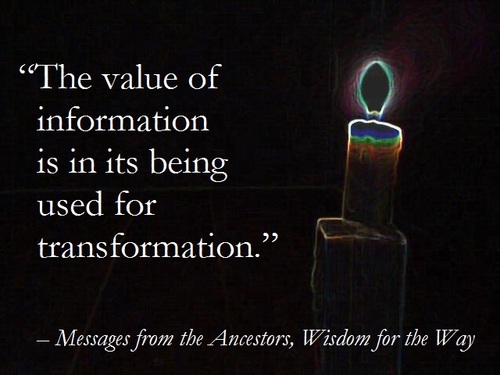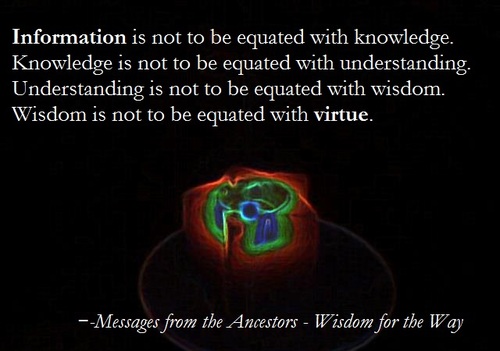In business, politics and philanthropy, being data-driven has become a point of pride.
Leaders parade decision-making as rational and strategic because they "have the numbers" to support it. The tech revolution with its miraculous information-processing seems to support the idea of data as king.
But any software engineer can tell you that information is completely dependent on context. Numbers are meaningless unless there's a logical narrative frame to make sense of them.
So is information the "king of kings" or just another useful servant?
Think about the financial crisis of 2008. The information about mortgages being granted to people who, in all likelihood, could not pay them off was freely available well before the disaster. And the markets knew that financial institutions sold derivatives based on these unsustainable mortgages. But the prevailing story was about phenomenal growth in real estate. We all heard that story - we heard about the great amounts of money being made by people and companies who bought houses only to flip them. The information about the terrible risk involved only became useful once the narrative bubble burst along with the economic one.
The wonderful Hans Christian Anderson story, The Emperor's New Clothes, also captures the power of narrative over information. The naked king is only acknowledged as naked when a young boy, unaware of the fictional consensus, blurts out the obvious. Once the story is recast, perceived reality changes, and so does people's behavior.
Many businesses and philanthropies see big data as an oracle of understanding and analysis, yet the challenges big data seeks to address (the capture, curation, management and processing of vast amounts of information, Wikipedia) cannot be met without setting parameters. That means the technical wizardry for crunching the numbers depends on creating a narrative about what you might want to discover.
Science, itself, starts with a hypothesis, a narrative guess at how cause and effect will play out. Scientists then design ways of testing their hypotheses. In this manner, they gather information in an active and critical way.
We can, too. Even when we research a project at work or learn about something in our personal lives, we can make ourselves the director of a quest for understanding rather than a consumer of facts. We can ask questions as we learn. We can listen to our intuition when it tells us it smells a rat and then ask still more questions. We can grow as we discover. That's when information becomes transformative.
Organizations and people go looking for data to solve problems and aid decision-making. That's good - even if we are just trying to locate the store that stocks local organic eggs from pastured chickens. Information becomes a tool, part of our life story.
But I believe we should be wary of short-cuts. Already many of us look for data not to learn or to solve problems, but simply to support a conclusion we've already reached.
This can save time in the short term. But it does not lead to transformation because it does not open our minds to other - and possibly dissonant - voices that can grow our approach.
In a wonderful report on NPR's TED Radio Hour, "Is Conflict Good for Progress?," Margaret Heffernan explained her argument that contrasting information, ideas and interpretations can spur our best thinking:
Openness alone can't drive change... Open information is fantastic, an open network's essential. But the truth won't set us free till we develop the skills and the habit and the talent and the moral courage to use it.
In other words, we become more creative and potent if we use information to diversify our thinking as well as to focus our actions. Imagine an organization regularly asking not only how it defines and assesses success, but if its gathering the kind - and variety - of information that can lead it to discovery and evolution.
Imagine asking yourself: what information can I gather that would impact my ongoing happiness by challenging me to change in healthy ways?
The supply side of information economy is multifarious beyond comprehension. And the data blossoms through a technical prowess that strikes me as magical. Yet, all the numbers and measurements matter little unless they are harnessed to an enlightened demand side of the exchange.
Data depend on relevance for impact. We give numbers their meaning and their context by the stories we create. Transformation, human improvement, business and social innovation - these all rely on information leavened with an act of imagination.
Note: Quotes can be found in an extraordinary little book published by friends of mine, Maryellen Kelley and Dr. David Cumes: Messages from the Ancestors, Wisdom for the Way


